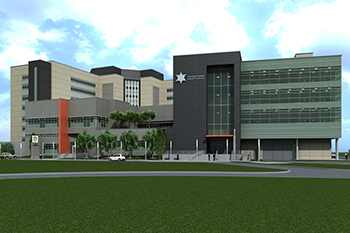New Report Criticizes Lack of HIV Services for Louisiana Inmates
 BATON ROUGE, La. — In the report, “Paying the Price: Failure to Deliver HIV Services in Louisiana Parish Jails,” national advocacy group Human Rights Watch claims Louisiana jail inmates consistently receive HIV services that are “limited, haphazard, and in many cases, non-existent.”
BATON ROUGE, La. — In the report, “Paying the Price: Failure to Deliver HIV Services in Louisiana Parish Jails,” national advocacy group Human Rights Watch claims Louisiana jail inmates consistently receive HIV services that are “limited, haphazard, and in many cases, non-existent.”
The 70-page report, released in Baton Rouge on March 29, claims that Louisiana parish jail inmates with HIV often go undiagnosed, untreated and are not connected to effective community care upon release. This is particularly troubling as many Louisiana AIDS service providers estimate that between one-quarter to one-half of their clients have been in jail or prison, according to the report. “Nowhere is the need for reform more urgent than in Louisiana, which incarcerates people at a higher rate than any other U.S. state,” the report states.
Currently, only five of the state’s 104 correctional facilities provide HIV testing to all new inmates. In examining HIV testing programs in Louisiana jails, researchers also found that “only a handful conduct routine, voluntary testing programs as recommended by the U.S. Centers for Disease Control (CDC).” The report additionally documented HIV treatment in jails that is delayed, interrupted, and in some cases denied altogether. “Despite the importance of continuity of care to people living with HIV, most inmates leaving jails in Louisiana receive little help in finding, or returning to, a community care provider,” the report concludes. Louisiana’s failure to ensure that inmates are connected to HIV testing, treatment and linkage to care upon release, the report claims, is also inconsistent with its obligations under international human rights law.
On a more national scale, the report points out that because the populations at risk of HIV and the populations that are incarcerated often overlap, the prevalence of HIV among incarcerated persons is three times greater than in the general population. One out of seven people living with HIV will enter a jail or prison each year, according to the report.
Researchers called Louisiana “ground zero” for the dual epidemics of HIV and incarceration, with Baton Rouge and New Orleans leading the country in new HIV infections each year. As of January 2016, the Louisiana Department of Corrections housed 525 prisoners living with HIV; in 2010, the prevalence of HIV in Louisiana state prisons was 3.5 percent, the second highest in the country, according to the report. Additionally, the death rate from AIDS in Louisiana is among the highest in the country.
While the CDC recommends that all correctional facilities provide routine voluntary HIV testing as well as linkage to medical care in the facility and upon release, at the majority of parish jails HIV tests are conducted only if a prisoner appears ill. Tests are otherwise conducted only upon request, and many jail officials reported that they were unaware if any of their inmates were HIV positive.
The report concludes that, for the most, part, the barrier to testing and care is financial. One HIV treatment course can cost upwards of $50,000 annually. Several jail officials who spoke with Human Rights Watch told the organization that they avoided testing inmates because they could not afford to provide treatment should the inmates test positive. While some federal funding is available, such funding generally does not provide for HIV treatment for state or local inmates, according to HRW.
The organization also collected reports that some HIV positive inmates declined to share their status with facility health staff fearing discrimination and harassment by guards or other inmates, despite the fact that this also prevented them from receiving proper treatment.
At a press conference in Baton Rouge addressing the report, State Rep. Patricia Haynes Smith, D-Baton Rouge, announced plans to file two resolutions this session requesting that the Louisiana Department of Health and Hospitals examine more closely HIV treatment and increased testing for inmates.
